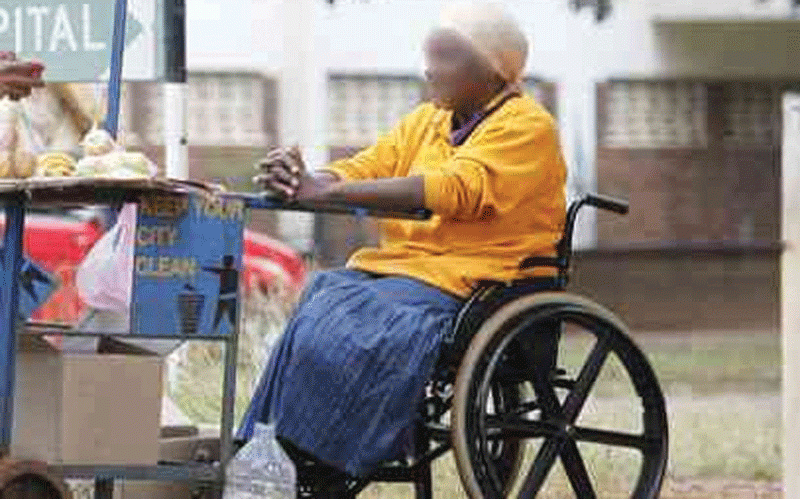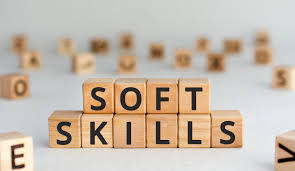
The 2025 theme for International Women’s month is focusing on collectively accelerating action for gender equality.
Stigma, ignorance and prejudice are factors that have excluded women with disabilities from opportunities. The Convention on the Rights of Persons with Disabilities recognises that women and girls with disabilities experience multiple discrimination because of the intersection of gender and disability related barriers leading to their exclusion in society.
They face systemic, attitudinal, environmental and communication barriers affecting their participation. Many women with disabilities experience challenges accessing quality education due to lack of inclusive learning materials, methods and societal bias.
The situation is compounded by low income that restricts access to quality education. Women with disabilities often encounter workplace discrimination, leading to a higher risk of poverty.
Disability and poverty mutually reinforce and contribute to increased vulnerability and exclusion. Hence, enabling women with disabilities to acquire domestic, technical or professional skills will assist them to break out of poverty and vulnerability.
When women with disabilities have access to education, employment, leadership and social participation, it shifts societal perceptions and reduces discrimination, proving that disability does not limit capability.
Very few private and public sector employers are committed to investing and employing people with disabilities due to several factors that include stigma and misconceptions around productivity and lack of knowledge on reasonable accommodation.
The situation has been worsened by the lack of accessible information on job opportunities.
- Bulawayo City fire coach Ncube
- Bulawayo City, Beefy part ways
- Zim coach in Rwanda success
- Miss Albinism vaccination drive gathers steam
Keep Reading
Stereotypes often portray women with disabilities as incapable, limiting their participation in leadership, entrepreneurship and political engagement. Women with disabilities are often underrepresented in leadership and decision-making positions.
Deep-seated biases often question the competence and authority of women, particularly those with disabilities, leading to limited access to leadership opportunities. Mentorship and professional networks are crucial for career development.
However, women with disabilities often encounter challenges accessing such opportunities. Women with disabilities struggle to access adequate healthcare due to physical and social barriers, leading to disparities in health outcomes.
They are at higher risk of experiencing abuse, neglect and sexual exploitation, often with limited access to legal and support systems. The physical environment, transportation, information and communication are not accessible, restricting mobility and participation in social and economic activities on an equal basis as others.
Even though the Convention on the Rights of Persons with Disabilities and the Convention on the Elimination of All Forms of Discrimination against Women emphasise the importance of empowering girls and women with disabilities, the gender and disability gap still exists and the efforts to address the disparities need to be accelerated for them to achieve social and economic independence.
The implementation of the National Disability Policy and other legislation has been slow due to several factors that include lack of clear operational guidelines, data and an operational framework among others.
Recommendations
To accelerate opportunities for women with disabilities, government, institutions and society must implement inclusive policies, taking a multifaceted approach in addressing education, employment, healthcare, accessibility and social inclusion.
Barriers that limit the participation of women with disabilities should be identified and programmes or interventions should be designed with gender and disability in mind.
Inclusive education should cater for accessible learning materials, assistive technologies and capacitated education professionals, offering opportunities for vocational training and diversity in career opportunities.
Effort should be made to specifically target women with disabilities since they may be less likely to enrol in learning institutions. Organisations of Persons with Disabilities (OPDs) in particular organisations representing women with disabilities should strengthen the capacity of institutions and ensure that the rights of women with disabilities are prioritised. Therefore, the capacity building of stakeholders and policy makers on gender and disability rights is imperative to address the specific needs of women with disabilities. Enforcing laws and guidelines that are anti-discriminatory will ensure equal employment opportunities and effort should be made to employ women with disabilities. Entrepreneurship opportunities should be supported with mentorship, accessible financial services and grants. In addition, female and disability friendly workspaces should be improved to enable full participation. Digital technologies present unprecedented opportunities for women with disabilities.
It is imperative to address the gender and digital divide for women with disabilities to participate fully in society. Investing in the provision of assistive technology will enhance mobility, communication and independence. Physical, digital and social environments should be made accessible for people with disabilities including women with disabilities. It is imperative to raise awareness about the specific health needs of women with disabilities and provide for inclusive health services. For example, women with disabilities may have restricted access to health information due to cognitive, hearing or visual impairment, hindering their ability to make informed health decisions.
Government and institutions should go beyond just collecting gender and disability disaggregated data but to understand the challenges faced by women with disabilities and measure the effectiveness of interventions. Therefore, disability data and research should aid in revising and promoting disability inclusive policies, institutions and environments. Disability data should encompass disability prevalence, health conditions associated with disability, needs and service provision including equity. Programmes and interventions should promote inclusive budgeting to cater for reasonable accommodation and accessibility, for example accessible buildings, transportation and communication. Appropriate measures should be taken to strengthen laws and policies that protect women with disabilities from abuse and exploitation. This entails establishing accessible reporting mechanisms and support services. Ensuring access to justice by women with disabilities contributes to the enjoyment of their rights, legal empowerment and equality before the law. Access to justice should ensure other marginalised groups such as women with intellectual disabilities are not left behind. Further the government should strengthen mechanisms for reporting discrimination, which include orientation and training on potential discrimination and recourse measures. Promoting the participation of women with disabilities in leadership roles and decision making will ensure that their needs are not overlooked. Concerted implementation efforts of inclusive practices are necessary across all sectors and supported by a budget to ensure the development of policies and programmes that support the advancement of women with disabilities. Negative attitudes remain a significant barrier that contributes towards the exclusion of women with disabilities.
However, government, institutions, employers and families have a role to play in promoting disability inclusion. Women with disabilities have potential.
- Tigere is a development practitioner and writes in her personal capacity.
- These weekly New Horizon articles are coordinated by Lovemore Kadenge, an independent consultant, managing consultant of Zawale Consultants (Private) Limited, past president of the Zimbabwe Economics Society and past president of the Chartered Governance & Accountancy Institute in Zimbabwe (CGI Zimbabwe). Email – [email protected] or mobile No. +263 772 382 852











